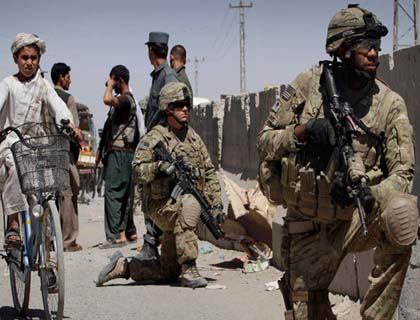KABUL - The first U.S. troops have left Afghanistan as part of U.S. President Barack Obama's planned drawdown of about a third of the 100,000 U.S. forces there during the next year.
Facing growing political opposition to the nearly decade-old war, Obama announced in June the withdrawal plan, which was a faster timetable than the military had recommended.
The first 10,000 troops will come home by the end of the year, but Obama left the details up to his commanders.
U.S. Lt. Col. Wayne Perry, a spokesman for the NATO-led International Security Assistance Force (ISAF), said about 650 troops who had completed their rotation in Afghanistan left on Wednesday as scheduled, and would not be replaced.
"As part of the drawdown the first U.S. troops have left Afghanistan," he said.
The units that left were the Army National Guard's 1st Squadron, 134th Cavalry Regiment, based in Kabul, and the Army National Guard's 1st Squadron, 113th Cavalry Regiment, which had been in neighbouring Parwan province.
Afghan security forces are to take over security responsibility from foreign forces in seven areas of the country this summer. Afghan forces will then take the lead in securing the entire country by the end of 2014.
Critics have said Obama's decision to bring troops home from Afghanistan faster than the military recommended could jeopardize the next major push of the war, to unseat insurgents in the east.
The drawdown comes amid intense fighting in Afghanistan, where more than 1,500 U.S. forces have been killed since the war began.
Although extra U.S. troops ordered into southern Afghanistan have made security gains there, the situation in the east of the country bordering Pakistan has deteriorated.
Late last month, insurgents staged a brazen raid on the Kabul Intercontinental hotel, killing 12 people and raising fresh questions about whether Afghan forces are ready to assume responsibilities as U.S. forces pull out. (Reuters)

